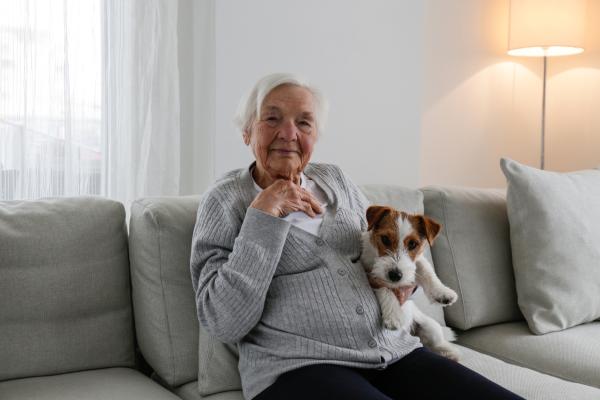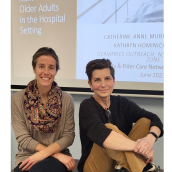
What is Dignity of Risk?
Dignity of risk is the right to live life in a way someone chooses, even with risk. It recognizes that daily life is uncertain and that taking normal risks can lead to positive outcomes in quality of life, health and well-being.
Why is Dignity of Risk important to older adults?
Most older adults want to keep their independence and make their own choices instead of being “kept safe”. Even if they are living with frailty (an age-related condition that makes it harder to recover from illness) or dementia, older adults should be supported to live on their terms as much as possible.
Barriers to Dignity of Risk
Our own worries can make us want to do things for older adults to help them avoid risks. But there are benefits to taking certain risks in daily life. After all, it is their life.
Ageism is a false belief that older adults cannot or should not do something because they are too old, or that they cannot make their own choices. This can lead to discrimination against older adults, “just because they are old”.
Being overprotective or treating older adults like they are fragile can hurt more than help them. When we try too hard to protect older adults from all possible risks, we can end up taking away small freedoms and choices that mean a lot to them.
Focusing too much on safety can lead to taking away older adults’ meaningful activities. This can harm their quality of life and independence. For example, preventing a person from walking or moving around because you worry they may fall.
How can we support older adults?
Support them to take reasonable risks.
- Respect their choices, independence and values, even if they are living with frailty, dementia or other conditions.
- Try our best to understand what they want.
- Identify and lower risks when possible.
- Keep their dignity for as long as possible
Using a Dignity of Risk approach in daily life
There are common risks that older adults living with frailty or dementia may experience, including, but not limited to:
- Falling, and having an injury
- Difficulties with managing appliances like a stove, washer or dryer
- Making mistakes with taking medications
- Becoming disoriented when on outings or walking
- Changing abilities in personal care like bathing, getting dressed and toileting.
Risk will depend on:
- The older adult’s frailty level and health conditions causing the frailty
- The older adult’s social situation. For example, living alone or with others (and their frailty and any risks), amount of support available, financial situation, etc.
- How aware the older adult is of the risks.
How risks are identified, assessed and managed often depends on the people involved in the older adult’s life, including healthcare providers, and their approach to risk.
If safety is a concern, it is important to talk with older adults about how the activities they enjoy could be modified or changed so there is less risk rather than removing the activity altogether. For example, an older adult can still:
- Live at home: Work with caregivers and healthcare team members to identify risks and find ways to lower these risks.
- Walk or spend time outdoors: Discuss wearing brightly-coloured clothing and consider a GPS-locating device or have a support person go with them.
- Cook: Consider installing a stove sensor or monitor that creates an alert when left on too long or have someone check that the stove is turned off after cooking.
- Walk around: If they are not steady on their feet, discuss using a cane or walker, install grab bars or railings in their home, make sure all areas of the home are well-lit and pathways to all rooms are free of clutter or have a support person walk with them. Doing basic strength and balance exercises can help maintain independence as well.
“There is a life for us, if we risk it.”
– A person living with dementia, in “Nothing Ventured Nothing Gained: Risk Guidance for People with Dementia” Department of Health and Social Care. (2010). Nothing ventured, nothing gained: risk guidance for people with dementia. United Kingdom.
Patient Education Resources
Immobility, Falls, and Dignity of Risk
This pamphlet explains why you might be at risk of falling because of immobility (not moving), what dignity of risk means, how your health care team will support you, and what you can do to lower your risk of falling.






